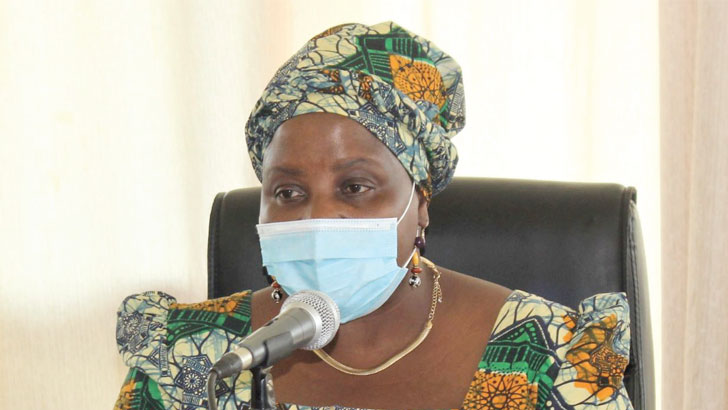Research shows Covid-19 impact
Findings of a research into the impact of Covid-19 in the country have shown that at some point during the pandemic, half the adult population in Malawi was hit by the virus.
Researchers came to the conclusion after measuring antibodies in randomly selected blood donors between January 2020 and July 2021.
The findings were released yesterday in Lilongwe during the opening of a conference dubbed Covid-19 Scientific Meeting organised by Ministry of Health and United Nations Children’s Fund (Unicef) that brought together various researchers and academics to review the country’s response to the pandemic.
The research team comprised scientists from Kamuzu University of Health Sciencies, Lilongwe University of Agriculture and Natural Resources, Mzuzu University, University of Malawi and Malawi-Liverpool Wellcome Trust.
Malawi has so far experienced three Covid-19 waves.

The various studies by the academics and researchers from various institutions have since been published in a booklet.
Among other key findings of one of the studies is that the majority of those who suffered from coronavirus referred to by its scientific name SARs-Cov-2, have developed some immunity such that when contracting they contracted the virus, 50 percent of them no longer fall sick.
Reads the study report: “There is reduced risk of SARs-coV-2 reinfection for at least six months during the first epidemic wave in seropositive adults in Blantyre.
“This study shows that prior SARs-Cov-2 exposure is protective against reinfection within the same epidemic wave and that other occupations could be at higher risk of infection than frontline HCWs [healthcare workers].
“These f indings have implications on locally-relevant public health measures against Covid-19 in Malawi.”
On Covid-19 vaccines, the study found that a single dose of the vaccine proved to be effective in most people, particularly those who suffered from Covid-19 and recovered.
In this regard, the researchers urged the country to enhance its vaccination efforts to continue beating back the pandemic.
Further reads the study: “This study shows that variant specific anti-body responses wane effectively after mild/moderate SARs-Cov infection but are robustly boosted following Covid-19 vaccination.
One of the researchers, Dr Kondwani Jambo, who works under the Malawi-Liverpool Wellcome Trust, said the findings further reveal that the immunity that comes with previous contraction of the disease lasts for six months. He said this was the reason the various Covid-19 waves come at six months’ intervals.
“The research shows that the Covid-19 spread more widely than we can find in deaths or cases reported. At least more than half of the people we have sampled had Covid-19. Further, the research says the first wave hit mostly urban populations but the second wave hit rural and urban populations equally,” he said.
The studies also state that the Covid-19 pandemic has increased malaria infections in the country with most of those ill delaying access to health services.
States the study: “Between January and August 2019, there were 6.6 percent [513 988] more suspected malaria cases and 37.6 percent [1 300 250] more confirmed malaria cases in 2020 than in 2019 over the same period.
Majority of suspected (68.2 percent) and confirmed malaria cases occurred in patients aged five years. Monthly suspected
.” malaria test positivity was relatively higher in 2020 relative to 2019
On effects on demand for and utilisation of maternal, newborn and child health services in Malawi, one of the studies said respondents indicated that measures to fight the pandemic reduced contact with service providers while service users highlighted fear of contracting Covid-19 at health facilities.
Awareness of Covid-19 is high at 90 percent with radio as the main source of information and levels of willingness to test for Covid-19 were also high at 85 percent.
In an interview after the official opening of the conference, Minister of Health Khumbize Chiponda said the meting will help the country review its response to the pandemic and plan for future pandemics and other emergencies.
She said: “They are sharing the knowledge and data they have acquired. Decisions we will come up with as government will have to be guided by research.”
Unicef country representative Rudolf Schwenk said although the pandemic requires a global response, every country also needs to review its response plans and come up with solutions to its realities.
He said the research has cleared issues people were asking about Covid-19.
Schwenk said: “We have seen that everybody got affected. We have seen health that systems got affected. We have seen families suffering from economic impacts and it’s a global pandemics and it has happened in Malawi as well.
“Now we have a chance with scientific evidence through this research to see how we improve and how can prepare ourselves for future pandemic.”
He said there was a need for the country to continue taking measures against the pandemic.
Malawi has registered 61 694 accumulative confirmed cases and there were 2 639 active cases as of Tuesday this week with 2 292 deaths recorded so far.
In terms of vaccine response, 610 492 people received the first dose of the double-dose AstraZeneca vaccine while 262 308 people received the second dose.
There were 249 714 recipients of the single-dose Johnson & Johnson vaccine.
Malawi targets to vaccinate 60 percent of the population or 11 million people to achieve herd immunity.





